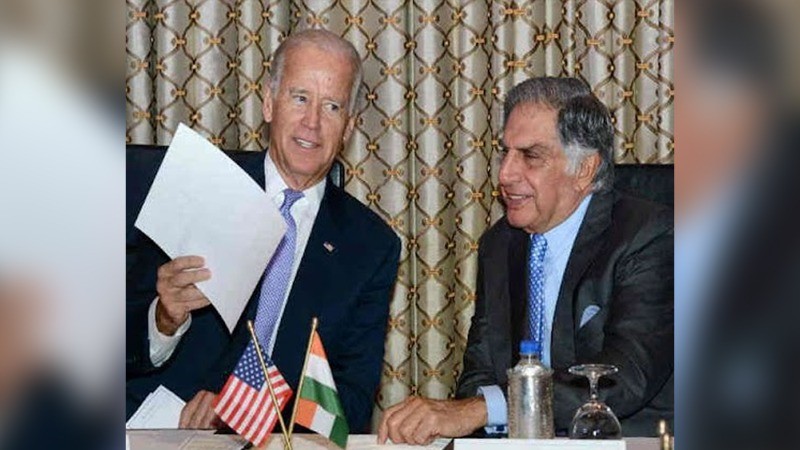
Ratan Naval Tata, a legendary industrialist and philanthropist, was one of India’s most influential business figures. He was the former chairman of the Tata Group, a conglomerate that he transformed into one of India’s largest and most powerful corporations. Sadly, Tata passed away at Breach Candy Hospital in South Mumbai.
In an insightful interview with Simi Garewal, Tata shared the story behind his decision to leave a promising career in the United States and return to India. He had initially studied architecture and structural engineering in the U.S. and worked there after graduating. “I had no intention of coming back. I was not well settled, but I was happily employed,” he explained.
However, his perspective changed when he felt the pull of family. Tata revealed that his grandmother, who had raised him after his parents divorced when he was young, played a significant role in his decision. “My grandmother talked me into returning, or rather, I returned because she wanted me back,” he said.
He expressed deep affection for his grandmother, noting, “I was quite close to her. She was getting older, and she wanted me back.” Tata emphasized that if it weren’t for her, he likely would not have returned to India. “I came back for her, or I would not have come. I happily came back,” he added.
Born on December 28, 1937, Ratan Tata was the son of Naval and Soonoo Tata. He grew up in the Tata Palace in central Mumbai, raised by his beloved grandmother, Navajbai Sett, alongside his younger brother, Jimmy.
Ratan Tata: A Legacy of Humility and Transformation: “Thank you for thinking of me,” Ratan Tata shared on October 7 in his final social media post. At 86 years old, he felt it necessary to address the “rumours circulating about his health,” reassuring everyone that he remained in good spirits. Tragically, just 48 hours later, the nation learned of his passing.
In a country where poverty is prevalent and skepticism towards wealth is deeply rooted, Ratan Tata stood out as a billionaire who was genuinely beloved. His popularity transcended the typical admiration for financial success; it was a heartfelt connection that was evident long before establishment figures began urging Indians to appreciate their “wealth creators.”
Ratan Tata was an incredibly successful businessman. During his two decades at the helm of the Tata Group, he grew the company's revenue from $5.1 billion to an astounding $100 billion, transforming it into a global powerhouse. Despite this remarkable achievement, he was rarely described as a shrewd businessman. Instead, those who knew him spoke of his integrity and deep-seated values.
From a young age, Ratan Tata was instilled with principles that emphasized humility. Those close to him often recalled how he disdained ostentatious displays of wealth. He was reportedly uncomfortable with the luxurious lifestyle that came with his position. In interviews, he recounted feeling embarrassed by the lavish car sent to pick him up from school. In an act of teenage rebellion, he would sometimes request his grandmother, Navajbai Tata—who raised him after his parents separated—to send a different vehicle. On some occasions, he even chose to walk home rather than ride in the fancy car.
Ratan Tata's legacy is not just one of immense wealth and business success; it is also a testament to the values of humility, integrity, and a deep connection to the community. His influence will be felt for generations to come, serving as a reminder that true greatness lies not only in financial achievements but also in the impact one leaves on society.
MORE: